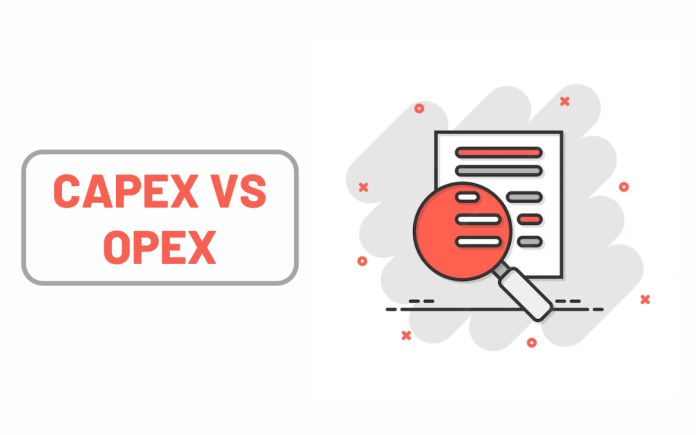In the world of business finances, two terms often cause confusion: Capital Expenditure (CapEx) and Operational Expenditure (OpEx). These terms might sound complex, but understanding them can make a huge difference in managing your company’s money wisely. Let’s embark on a journey to demystify these terms, with relatable examples and insights from seasoned investors.
Capital Expenditure (CapEx): Building for the Future
Picture this: your business is like a garden. Capital expenditures are the seeds you plant that will grow into valuable assets, bearing fruits of profitability in the long run. As Warren Buffett succinctly puts it, “Price is what you pay, value is what you get.” CapEx involves investing in significant assets that appreciate over time, generating value beyond the initial expense.
Examples of CapEx:
- Imagine acquiring a new manufacturing machine that streamlines production processes and boosts output.
- Purchasing a commercial property to house your expanding operations, signalling stability and growth.
- Investing in research and development to create innovative products that secure your market position.
Operational Expenditure (OpEx): Keeping the Wheels Turning
Think of OpEx as the fuel that keeps your business vehicle running smoothly daily. In the words of Peter Lynch, OpEx is like “buying groceries rather than buying a new refrigerator.” These expenses are the lifeblood of your operations, necessary to maintain the status quo and ensure consistent functionality.
Examples of OpEx:
- Paying employee salaries to keep your workforce motivated and productive.
- Settling utility bills, including electricity and water, which are essential for day-to-day operations.
- Renting office space in a convenient location that supports your team’s efficiency.
Tax Treatment: A Tale of Timing
One of the key differences between CapEx and OpEx lies in how they are treated for tax purposes. Capital expenditures are typically spread out over the useful life of the asset, allowing for gradual tax deductions. On the other hand, operational expenditures often offer immediate tax benefits by allowing you to deduct the entire expense in the same year.
CapEx Accounting:
Capital expenditures are not deducted all at once in the year you spend the money. Instead, they’re spread out over the useful life of the thing you bought. Imagine it like taking small bites of a delicious treat over time.
Recording on Balance Sheet: CapEx expenses are noted as valuable things you own on your financial record. Think of them like treasures in a “property, plant & equipment” section.
Cash Flow Statement: On your cash flow report, they’re part of “investing activities,” showing you’ve invested in your business’s future.
Income Statement: The cost is divided up and put in the expense account as “depreciation,” like a little bit of the cost being used up each year.
Example: If you bought a Rs 40,00,000 machine that works for ten years, every year its value goes down by 10%. So, at the end of each year, you see a Rs 4,00,000 (10% of Rs 40,00,000) reduction in your financial report as depreciation.
Also, remember that just like tangible things, like machines, lose value over time, intangible things and ideas also have a limited life. They’re “amortized” over their life cycle.
OpEx Accounting:
Operational expenses are the everyday costs to run your business. They’re like paying for gas and oil to keep your business car running smoothly.
Income Statement: These expenses, like utilities, rent, and salaries, are listed under “Operational Expenses.” The good news is that they can be deducted from your taxes in the same year you paid them.
Making the Right Choice: A Lesson in Strategy
Joel Greenblatt’s insight that “Buying a stock is like buying a business” can guide your decision-making process between CapEx and OpEx. Consider your business goals and financial situation before making a choice:
Opting for CapEx: If you’re envisioning lasting assets that appreciate over time and contribute to long-term growth, CapEx is your ally. Despite delayed tax benefits, the value and potential future tax benefits can outweigh the initial expense.
Choosing OpEx: When flexibility and adaptability are paramount, OpEx shines. The immediate tax benefits, coupled with the ability to adjust expenses swiftly, make OpEx ideal for businesses in dynamic environments.
As Benjamin Graham wisely suggests, “The essence of investment management is the management of risks, not the management of returns.” Similarly, in the business realm, understanding the risks and rewards of CapEx and OpEx can guide you toward prudent financial decisions.
So, as you tread the path of financial management, remember that every expenditure choice contributes to your company’s narrative. Whether you’re sowing the seeds of CapEx for future growth or fueling operations through OpEx, each decision shapes your business journey in distinctive ways.


